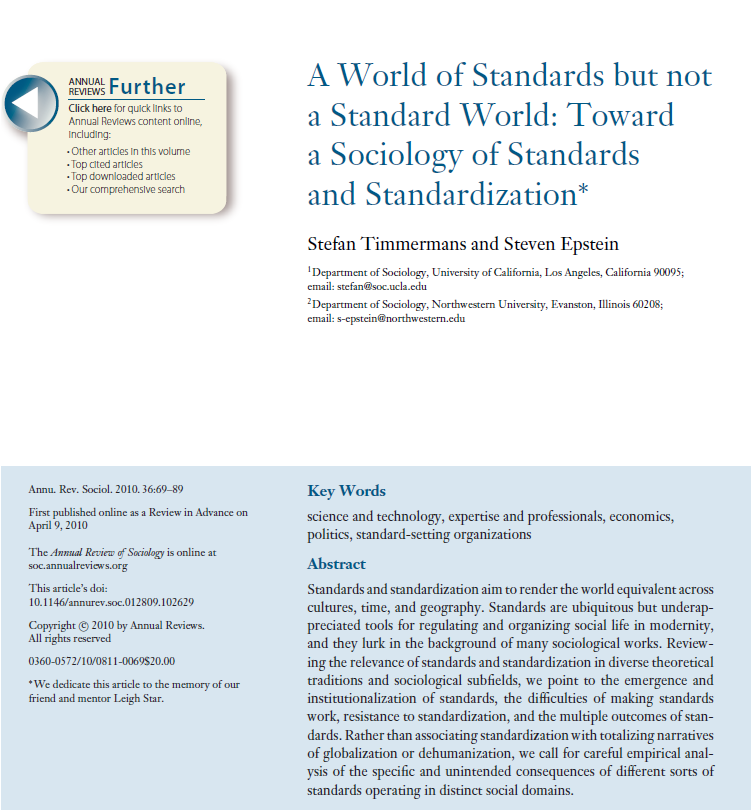The Importance of Food Safety Culture: Sociology quotes


“Should this continuous tinkering with procedural standards be interpreted as a fatal standard deviation that renders standardization of human behavior impossible? As Wittgenstein (1953) and ethnomethodologists have noted (Heritage 1984), no rule can adequately capture the requisite work of a prescribed action. On the ground, every standard is simultaneously overdetermined and incomplete. To coordinate diverse interests and activities, standards necessarily delegate some residual work that requires active participation and submission of people to the standard’s directives. Tinkering, repairing, subverting, or circumventing prescriptions of the standard are necessary to make standards work (Lampland & Star 2009, p. 4; Star 1995,pp. 100–104). Thus, a recurring surprising finding is that loose standards with great adaptability may work better than rigidly define standards. Moreover, users often need to work deliberately to save the standard from falling apart under changing circumstances (Alder 1998, de Laet&Mol 2000, Hogle 1995, Jordan& Lynch 1998). Yet flexibility may tip a standard into uselessness. UNIX, an obvious choice for a standard operating system in the 1980s, failed because it remained excessively flexible. So many designers worked on different versions of the system that it lost its promise of compatibility across computers (Kelty 2008).
The trick in standardization appears to be to find a balance between flexibility and rigidity and to trust users with the right amount of agency to keep a standard sufficiently uniform for the task at hand. In some settings, automation or incorporation of a standard in other technologies helps preserve the standard (Jordan & Lynch 1998). Implementation of standards thus requires embedding a standard with its script to coordinate disparate elements in societies already saturated with countless routines and standards (Berg 1997). Standardization is an active, time- and resource-intensive process. Depending on the standard, building standard-based societies may require integration on many different levels: from national cultures with their moral orders to institutions with their conventions of work practices, organizations, and multiple layers of technologies. Standards often require an auxiliary system that provides internal or external incentives, audits, and certification. Standards may fail implementation for countless reasons, including lack of knowledge, lack of compliance, immediate conversion of standards, resistance, adaptation, or usurpation. Very few standards work as intended by the designers of standards because they are tinkered with, whether slightly or fundamentally. It would be wrong to consider these standards as failures because a standard’s flexibility is often key to its success”.
Timmermans, S., & Epstein, S. (2010). A World of Standards but not a Standard World: Toward a Sociology of Standards and Standardization. Annual Review of Sociology, 36(1), 69–89.